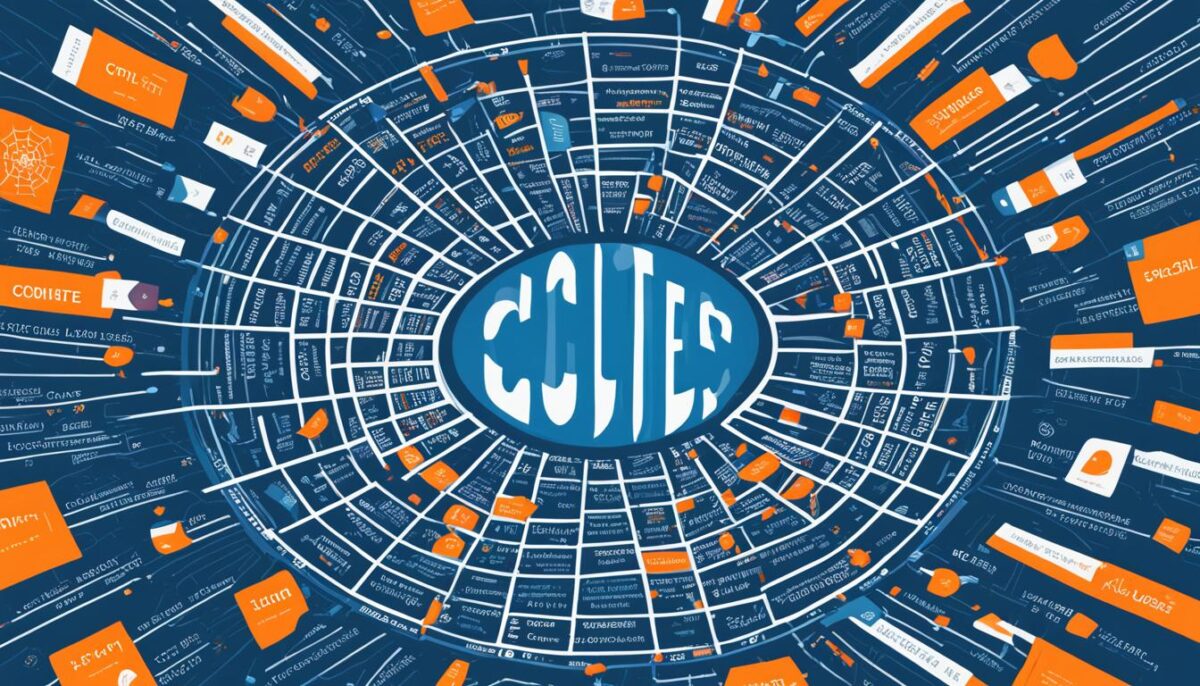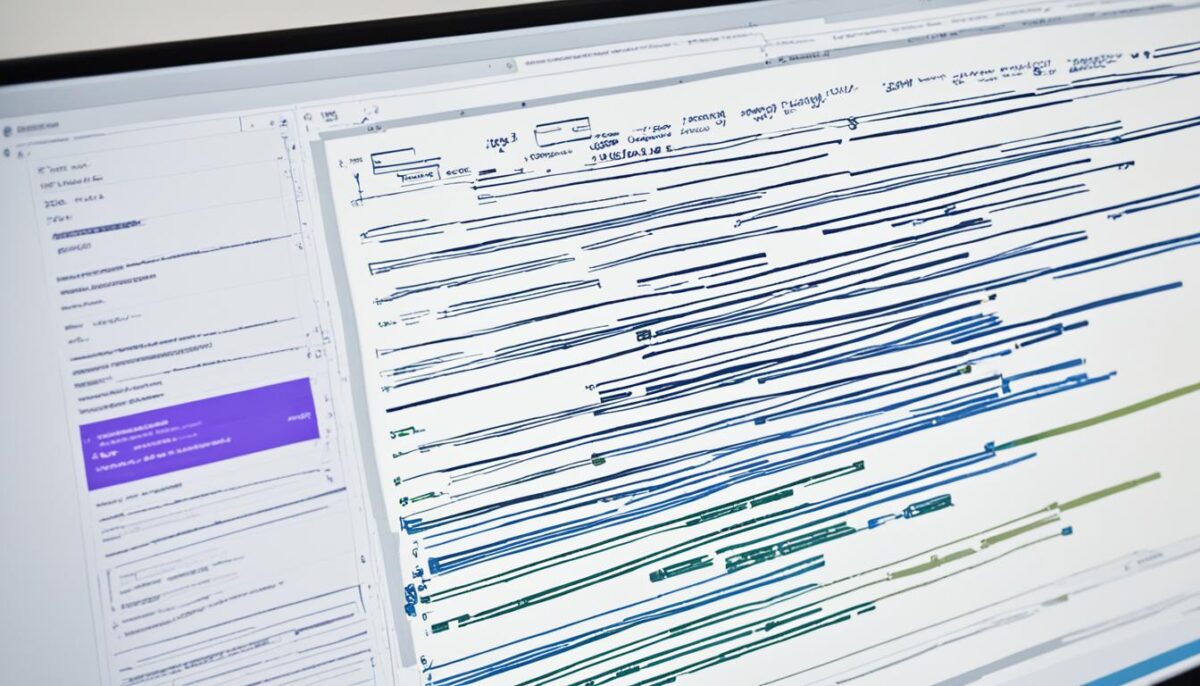Welcome to our article on coding languages used to develop websites. If you’ve ever wondered how websites are built or what coding languages power them, you’ve come to the right place. In this section, we will explore the different coding languages that play a crucial role in website development.
Coding languages are the backbone of websites, enabling developers to create the interactive and functional elements that we see and interact with. These languages provide the instructions for computers to understand and execute, ultimately forming the visual and interactive components of a website.
As a website developer, understanding the coding languages is essential for creating websites that are efficient, effective, and user-friendly. By choosing the right coding language, developers can optimize performance, enhance functionality, and deliver a seamless user experience.
In the following sections, we will delve into the top coding languages that are widely used for website development. We will explore their features, benefits, and industry popularity, providing you with a comprehensive understanding of each language and its applications.
So, whether you’re a seasoned developer looking to expand your skillset or a beginner venturing into website development, join us as we uncover the world of coding languages that power the websites we use every day.
Top Coding Languages for Website Development
When it comes to website development, choosing the right coding language is crucial. Different coding languages offer unique features and benefits that can greatly impact the development process and the overall performance of a website. In this section, we will explore the top coding languages that are widely used in the industry for website development.
1. HTML
 One of the fundamental coding languages for web development is HTML (Hypertext Markup Language). It is the backbone of web pages and provides the structure and layout for the website. HTML is used to define elements such as headings, paragraphs, images, and links. It is a must-have skill for any web developer.
One of the fundamental coding languages for web development is HTML (Hypertext Markup Language). It is the backbone of web pages and provides the structure and layout for the website. HTML is used to define elements such as headings, paragraphs, images, and links. It is a must-have skill for any web developer.
2. CSS
CSS (Cascading Style Sheets) is another essential coding language for website development. It is used to style and format the visual aspects of a web page. CSS allows developers to control the colors, fonts, layouts, and overall design of a website. With CSS, you can create beautiful and responsive web pages that adapt to different devices and screen sizes.
3. JavaScript
JavaScript is a versatile programming language that adds interactivity and dynamic functionality to websites. It enables developers to create interactive elements, validate forms, handle events, manipulate the DOM (Document Object Model), and much more. JavaScript is widely used in modern web development frameworks and libraries such as React.js and Angular.js.
4. Python
Python is a powerful and beginner-friendly programming language that is not only used for web development but also for various other applications. It offers simplicity and readability, making it an excellent choice for building web applications, handling data, and creating server-side logic. Python frameworks like Django and Flask provide a robust foundation for web development projects.
These are just a few of the top coding languages for website development. Each language has its own strengths and weaknesses, so it’s essential to consider your project requirements and objectives when choosing the right language. In the next section, we will discuss how to select the most suitable coding language for your website development needs.
Choosing the Right Coding Language for Your Website
When it comes to website development, choosing the right coding language is crucial. With so many options available, it can be overwhelming to determine which one will best suit your project. To make an informed decision, consider a few key factors that can influence the success of your website.
First and foremost, assess your project requirements. Different coding languages have varying strengths and capabilities. For example, if you are building a dynamic and interactive website, a language like JavaScript might be your best bet. On the other hand, if your website requires a robust backend, languages like Python or Ruby are known for their versatility.
Scalability is another important consideration. As your website grows and evolves, you’ll want a coding language that can easily accommodate future enhancements and changes. Look for languages with strong frameworks and a supportive community, as they can provide guidance and resources for scaling your website effectively.
Additionally, assess the learning curve of each coding language. If you’re new to web development, choosing a language that has extensive documentation and a large community of developers can be beneficial. This will ensure that you have access to ample learning resources and support, making your development journey smoother.



